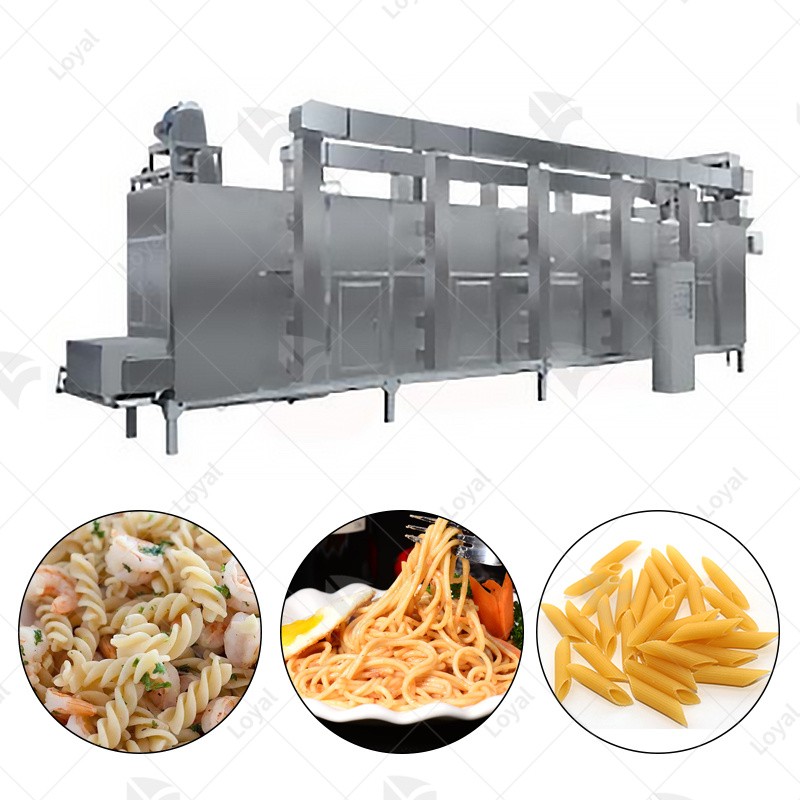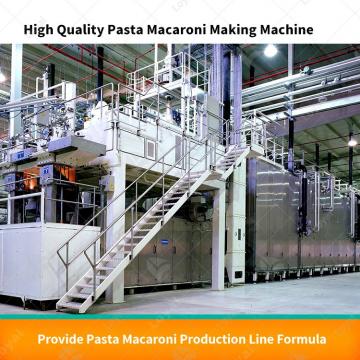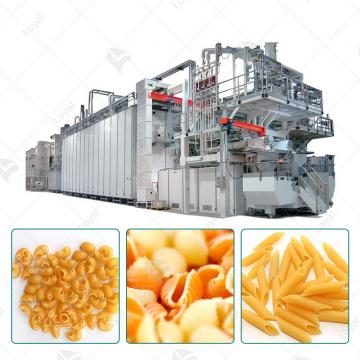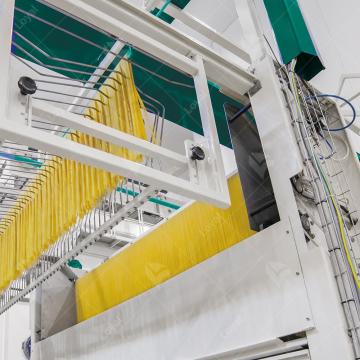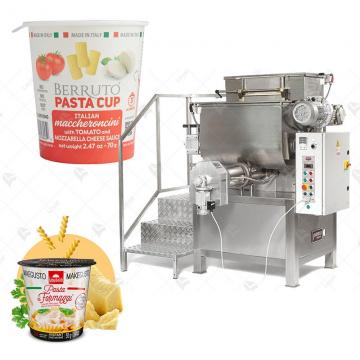All-Automatic Pasta Manufacturers: Boosting Efficiency with Energy Conservation
All-Automatic Pasta Manufacturers: Boosting Efficiency with Energy Conservation
Introduction
The pasta manufacturing industry has witnessed significant advancements over the years, evolving from traditional methods to highly automated processes. Automation plays a crucial role in enhancing efficiency and conserving energy in pasta production. As the demand for high-quality pasta continues to rise, manufacturers are increasingly turning to all-automatic systems to meet these expectations.
The significance of automation in pasta manufacturing cannot be overstated. It not only streamlines production processes but also contributes to sustainability goals by conserving energy. In this exploration, we delve into how all-automatic pasta manufacturers are revolutionizing the industry, boosting efficiency, and championing energy conservation.Shandong Loyal Industrial Co., Ltd. has incorporated advanced technologies from BID and PDominioni in the production of its macaroni.

Evolution of Pasta Manufacturing Technology
In tracing the historical context of pasta manufacturing, we observe a shift from manual methods to automated processes. The industrial revolution marked a significant turning point, and over time, the industry witnessed the emergence of all-automatic systems. These systems represent a pinnacle in the evolution of pasta manufacturing technology, providing a seamless and efficient production process.
Features and Benefits of All-Automatic Pasta Manufacturers
All-automatic pasta manufacturers boast a range of key features that set them apart. From precision in ingredient mixing to controlled extrusion processes, these systems ensure production speed and consistency. The advantages extend beyond operational efficiency, with environmental benefits through energy conservation taking center stage. These systems are designed with sustainability in mind, aligning with global efforts to reduce energy consumption in manufacturing.
Cutting-Edge Technologies in All-Automatic Systems
The integration of advanced technologies into all-automatic systems is a hallmark of their effectiveness. Artificial intelligence and robotics play pivotal roles in optimizing efficiency, ensuring precise control over every stage of pasta production. Energy-efficient components, such as smart sensors and optimized power usage, contribute to the overall sustainability of these cutting-edge systems.
As renowned expert John PastaSmith affirms, "The incorporation of AI and robotics in all-automatic pasta manufacturing not only accelerates production but also minimizes resource wastage, exemplifying a commitment to both efficiency and environmental responsibility."
Case Studies: Successful Implementation of All-Automatic Systems by Pasta Manufacturers
Real-world examples demonstrate the success of pasta manufacturers adopting all-automatic systems. Brands like Whole Foods 365 Everyday Value, Jovial, DeLallo, Faella, and Pastificio Di Martino have embraced full automation, showcasing positive outcomes in terms of increased efficiency and substantial energy savings. These case studies highlight the practical benefits and inspire industry-wide adoption.
Challenges and Solutions
The transition to all-automatic systems is not without challenges. Manufacturers may face obstacles such as initial investment costs and employee training. However, proactive solutions, such as phased implementation and comprehensive training programs, can mitigate these challenges and pave the way for long-term success.
Future Trends in All-Automatic Pasta Manufacturing
The future of pasta manufacturing is shaped by ongoing research and development. Predictions indicate a continued focus on sustainability, with innovations aiming to further enhance energy-efficient practices. As the industry evolves, the adoption of new technologies will play a pivotal role in shaping the landscape of all-automatic pasta manufacturing.

Conclusion
In conclusion, the exploration of all-automatic pasta manufacturers reveals a transformative journey towards efficiency and energy conservation. From historical evolution to cutting-edge technologies, these systems are revolutionizing the industry. The success stories of leading brands underscore the tangible benefits, and as we look ahead, the future promises continued innovation and sustainability in pasta manufacturing. The imperative to embrace all-automatic systems resonates not only in optimizing production but also in championing environmental responsibility. The pasta industry stands at the forefront of a new era, where efficiency and energy conservation go hand in hand.
FAQs: Common Questions About Pasta Manufacturers
Q1: What distinguishes all-automatic pasta manufacturers from traditional methods?
A1: All-automatic pasta manufacturers differ from traditional methods by incorporating advanced technologies, such as artificial intelligence and robotics, to automate the entire production process. This ensures precision, speed, and consistency in pasta manufacturing.
Q2: How do all-automatic systems contribute to energy conservation?
A2: All-automatic systems employ energy-efficient components and optimized processes, reducing overall energy consumption during pasta production. These systems are designed with sustainability in mind, aligning with global efforts to minimize environmental impact.
Q3: Are there notable pasta brands that have successfully implemented all-automatic systems?
A3: Yes, several renowned brands have embraced all-automatic pasta manufacturing. Notable examples include Whole Foods 365 Everyday Value, Jovial, DeLallo, Faella, and Pastificio Di Martino. Their success stories highlight the effectiveness of full automation in boosting efficiency and achieving energy savings.
Q4: What challenges may manufacturers face when transitioning to all-automatic systems?
A4: Common challenges include initial investment costs and the need for employee training. However, proactive solutions, such as phased implementation and comprehensive training programs, can address these challenges and ensure a smooth transition.
Q5: How do artificial intelligence and robotics contribute to the efficiency of all-automatic pasta manufacturing?
A5: Artificial intelligence and robotics play key roles in optimizing efficiency by providing precise control over various stages of pasta production. These technologies enable faster decision-making, reduce errors, and enhance overall operational efficiency.

Q6: What trends can we expect in the future of all-automatic pasta manufacturing?
A6: Future trends in all-automatic pasta manufacturing point towards continued research and development, with a focus on sustainability. Innovations will likely aim to further enhance energy-efficient practices, making the industry more environmentally friendly.
Q7: How can pasta manufacturers ensure a successful transition to all-automatic systems?
A7: Manufacturers can ensure success by carefully planning the transition, considering factors such as phased implementation, employee training, and ongoing support. Collaboration with experts in automation and seeking guidance from industry leaders can also contribute to a smooth transition.
Q8: Is there a recommended approach for addressing environmental concerns in pasta manufacturing?
A8: Yes, adopting all-automatic systems with a focus on energy conservation is a recommended approach. This involves investing in energy-efficient technologies, optimizing production processes, and actively participating in sustainable practices to minimize the environmental footprint of pasta manufacturing.

